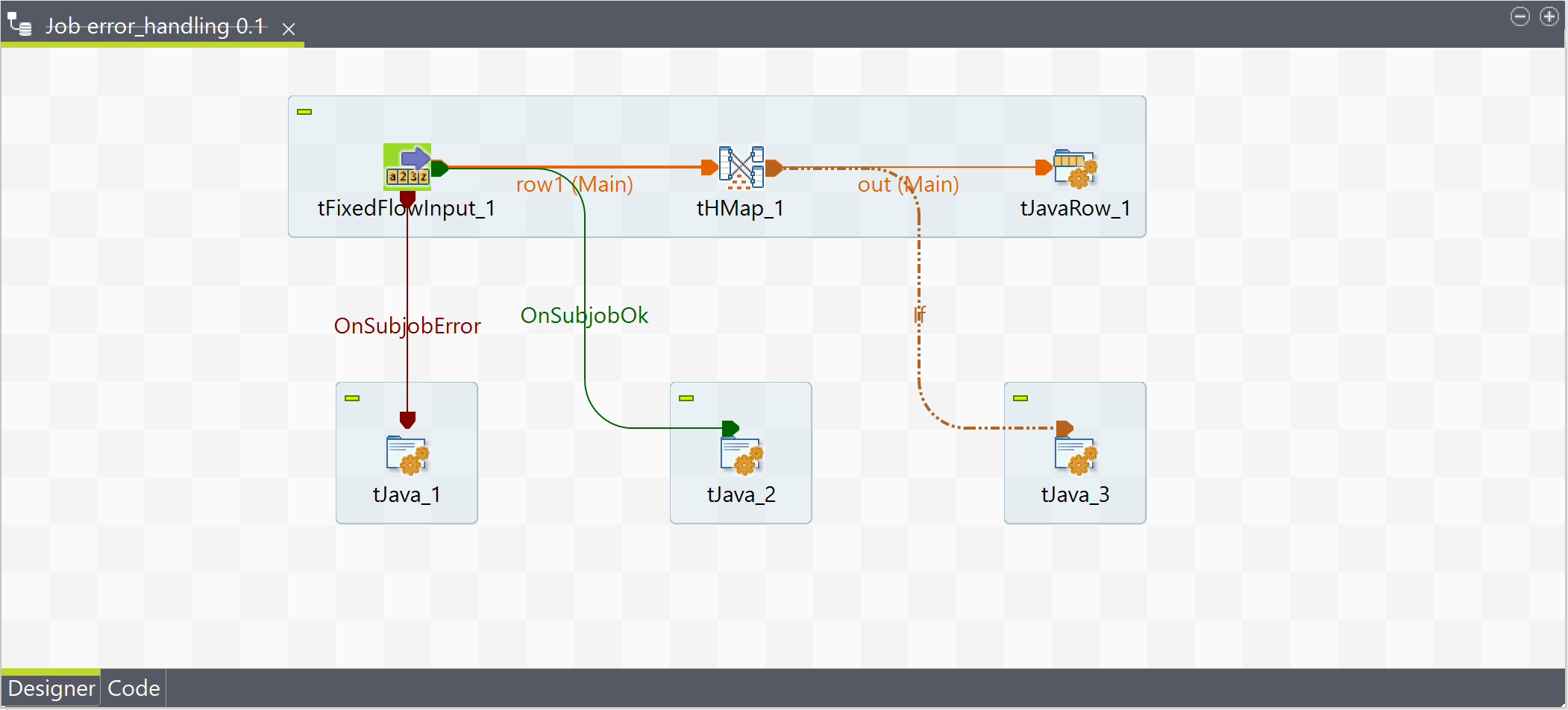Handling errors
This scenario applies only to Talend Data Management Platform, Talend Big Data Platform, Talend Real-Time Big Data Platform, Talend MDM Platform, Talend Data Services Platform, Talend MDM Platform and Talend Data Fabric.
For more technologies supported by Talend, see Talend components.
This following scenario creates a six-component Job that shows how to handle error conditions using the tHMap component.
When tHMap executes a Talend Data Mapper map, an ExecutionStatus object is always returned. A pointer to this object is stored in the globalMap as <tHMap_id>_EXECUTION_STATUS. In addition, the Overall Severity numeric value is also stored in the globalMap as <tHMap_id>_EXECUTION_SEVERITY.
Finally, a parameter called Exception Threshold is defined that specifies the severity on which to throw an exception, thus triggering Job-related or component-related error processing. This value can be defined in the tHMap properties, in the Advanced settings tab. The default value for this parameter is Fatal.
-
getOverallSeverity(): returns the numeric value of the highest
severity level.
- INFO is returned as 1
- WARN is returned as 2
- ERROR is returned as 4
- FATAL is returned as 0x40
- isOK(): returns true if there is no warning, error or fatal status.
- exportToXml(writer): writes the status items in XML format.
-
getFirstNonInfo(): returns an object of class
org.talend.transform.runtime.common.StatusItem, which corresponds
to the first status item with a severity higher than INFO. If there
are only items with the INFO status, this method returns null.
In this org.talend.transform.runtime.common.StatusItem object, you can use the getAsText() method, which returns a description of the status item as a human-readable formatted string.
- getItem(int_index): returns the status item at the given index in the collection of items. The index is zero-based.
- getFirstNonInfoIndex(): returns the index of the first status item with a severity higher than INFO in the collection of items. This is the index of the item that getFirstNonInfo() would return. This method returns -1 if there are no items with a severity level higher than INFO.

Did this page help you?
If you find any issues with this page or its content – a typo, a missing step, or a technical error – let us know how we can improve!
